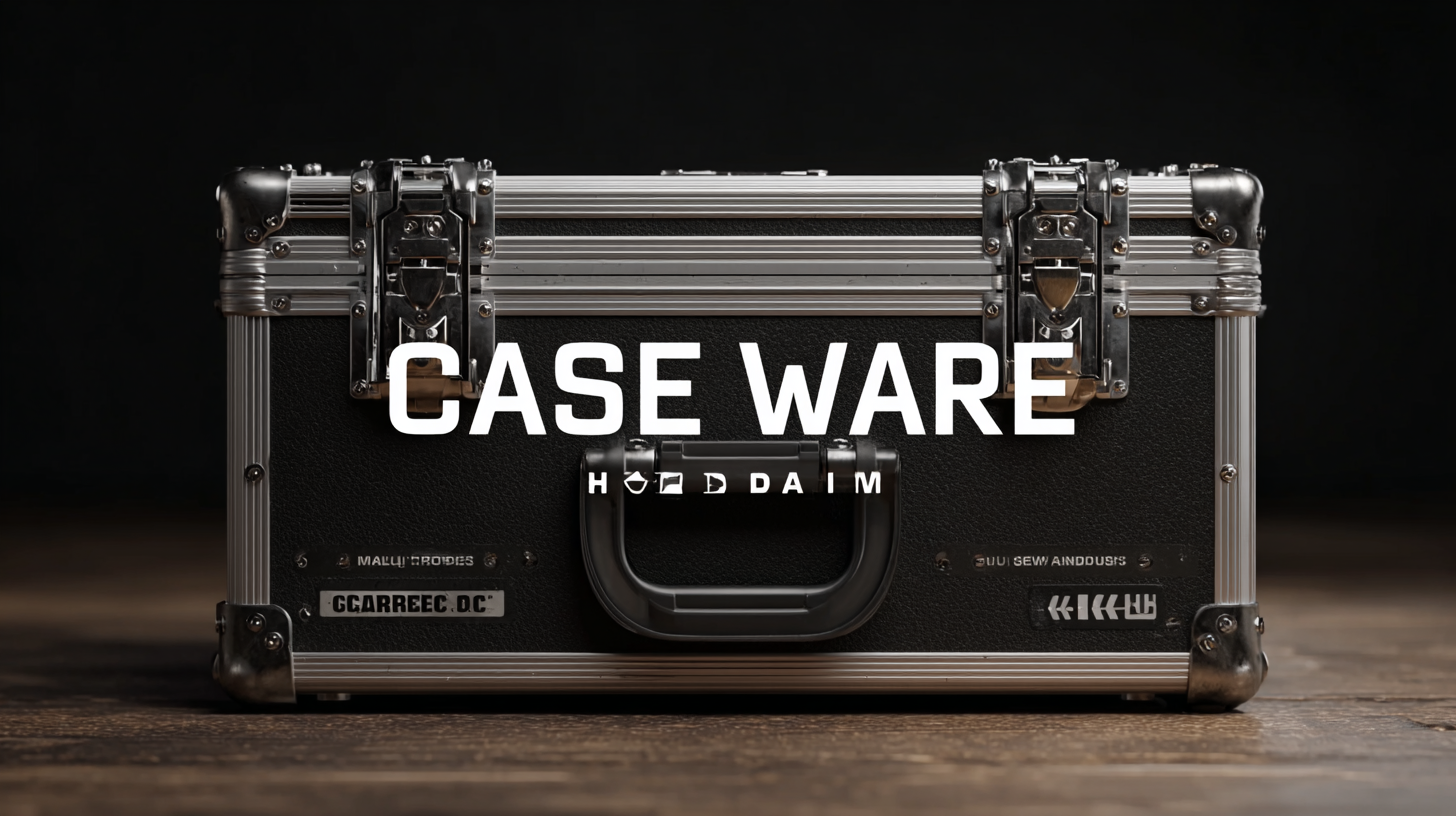Leave Your Message
In the realm of professional audio, video, and entertainment equipment, understanding global standards in road case hardware is essential for making informed purchasing decisions. Road case hardware serves as the backbone of protective cases that safeguard valuable gear during transport and on-site usage. As the industry evolves, manufacturers are increasingly adhering to international standards that ensure durability, functionality, and compatibility of their products. This guide will explore the critical aspects of road case hardware, providing insights into how these global standards impact quality, performance, and ultimately, customer satisfaction. By comprehensively understanding these standards, purchasers can make strategic decisions that not only protect their investments but also enhance the efficiency of their operations in an ever-competitive market.

 When it comes to purchasing road case hardware, understanding global standards is crucial. These standards ensure not only the quality and durability of the hardware but also compatibility with various systems and equipment worldwide. With a wide array of manufacturers and suppliers in the market, adhering to established global standards simplifies the purchasing process, giving buyers confidence in the reliability of their chosen products regardless of where they are sourced.
When it comes to purchasing road case hardware, understanding global standards is crucial. These standards ensure not only the quality and durability of the hardware but also compatibility with various systems and equipment worldwide. With a wide array of manufacturers and suppliers in the market, adhering to established global standards simplifies the purchasing process, giving buyers confidence in the reliability of their chosen products regardless of where they are sourced.
Moreover, the significance of global standards extends beyond mere product reliability; it also impacts maintenance and repairs. When road case hardware complies with recognized standards, replacement parts and service providers are more accessible, reducing downtime for users. This uniformity fosters a more efficient supply chain, allowing businesses to make informed decisions based on performance benchmarks and specifications that meet international requirements. Therefore, being aware of these standards not only influences purchasing decisions but also plays a key role in the longevity and efficiency of the equipment used in various industries.
When selecting road case hardware, it's crucial to focus on key technical specifications that can significantly impact your effectiveness and efficiency. Look for durability, as road cases endure the rigors of transportation and handling. High-quality materials, like plywood or heavy-duty plastic, provide better protection for your equipment. Additionally, the choice of hardware components, such as handles, wheels, and latches, should be assessed for usability and reliability.
Tip: When considering handles, opt for those that offer a comfortable grip and are easy to maneuver, especially when the case is loaded. For wheels, ensure they are robust and capable of navigating various terrains, as this can prevent unnecessary wear on your case.
Another vital aspect to consider is the internal configuration of the case. Customizable foam inserts or built-in compartments can help keep your gear organized and minimize potential damage during transport.
Tip: Always verify that the internal dimensions match your equipment requirements. A snug fit is essential to prevent movement inside the case, which can lead to wear and tear over time. Investing time in selecting the right road case hardware will ultimately enhance your purchasing decisions and protect your valuable equipment.
| Specification | Description | Standard Unit | Importance Level |
|---|---|---|---|
| Material Type | The type of material used for the road case hardware such as aluminum, steel, or plastic. | N/A | High |
| Weight Capacity | The maximum weight that the hardware can support. | Kilograms (kg) | Critical |
| Corrosion Resistance | The ability of the hardware to resist corrosion, especially in harsh environments. | N/A | Medium |
| Universal Fitting Standards | Standards that ensure compatibility with different road case systems. | N/A | High |
| Locking Mechanism Type | Type of lock used to secure the hardware, such as key lock or combination lock. | N/A | High |
| Dimensional Tolerance | The allowable deviation from specified dimensions of the hardware. | Millimeters (mm) | Medium |
| Temperature Rating | The temperature range in which the hardware remains functional. | Celsius (°C) | Low |
When it comes to road case hardware, understanding the various types available is crucial for making informed purchasing decisions. Road cases are essential for transporting sensitive equipment, and each type of hardware plays a pivotal role in ensuring durability and safety. According to a report by Zion Market Research, the global market for road case hardware is projected to grow significantly, reaching an estimated value of $350 million by 2025, driven by advancements in material technology and increasing demand from industries such as entertainment and broadcasting.
Different types of hardware, including latches, hinges, and corner protectors, offer unique benefits tailored to specific needs. For example, heavy-duty latches are designed to withstand rigorous handling and environmental challenges, making them indispensable for touring musicians and event tech crews. A recent industry survey highlighted that 65% of professionals prefer road case hardware that offers both security and ease of use, emphasizing the importance of selecting the right components to enhance workflow efficiency. Whether you’re a seasoned pro or just starting, understanding these variations can significantly influence your equipment's longevity and performance.
In the realm of road case hardware, understanding global standards is crucial for discerning quality and durability in purchasing decisions. These standards not only dictate best practices in material and design but also ensure that products can withstand the rigors of transport and usage. As buyers become more informed about the significance of certifications and compliance with international benchmarks, they can make choices that enhance the longevity and performance of the equipment being housed.

Moreover, the influence of global standards extends beyond mere compliance; it fosters innovation in manufacturing processes and materials that adhere to strict durability requirements. As the market evolves, the integration of advanced technologies and sustainable practices becomes paramount. Manufacturers that prioritize these standards not only cater to consumer demand for quality but also contribute to broader initiatives, such as reducing environmental impact by minimizing waste and improving energy efficiency during production. Understanding this interplay can empower consumers to make choices that not only meet their immediate needs but also reflect long-term value and sustainability.
In today's competitive landscape, making informed purchasing decisions relies heavily on understanding technical parameters and leveraging data analytics. When it comes to sourcing road case hardware, being aware of global standards can significantly influence your choices. Operators in the transportation industry, for instance, can utilize Driver and Vehicle Standards Agency (DVSA) data to ensure their investments comply with regulatory requirements and meet safety benchmarks. This data-driven approach minimizes risks and enhances operational efficiency.
Furthermore, technologies such as AI are emerging as invaluable tools for consumers, aiding in the decision-making process. These advancements ensure that buyers have access to comprehensive information while browsing products, allowing them to compare technical specifications effectively. Retailers are increasingly adopting data analytics to refine their inventory management and reduce costs associated with returns, as informed customers tend to make better purchasing decisions.
As the market evolves, harnessing these insights can empower businesses and consumers alike to navigate complexities in the procurement of road case hardware with confidence.
